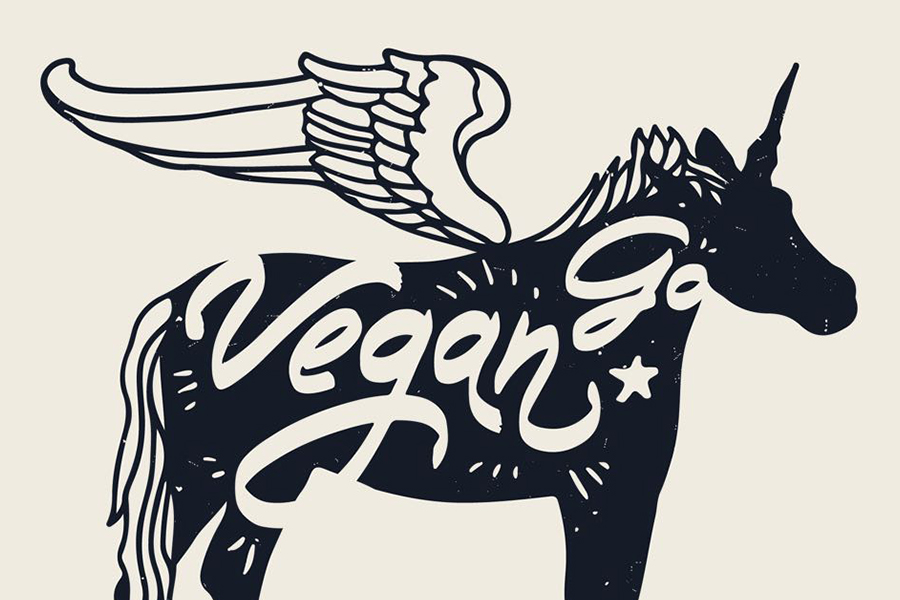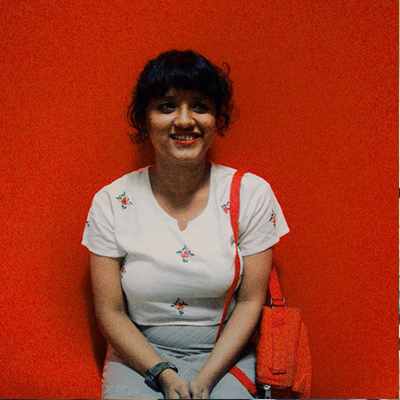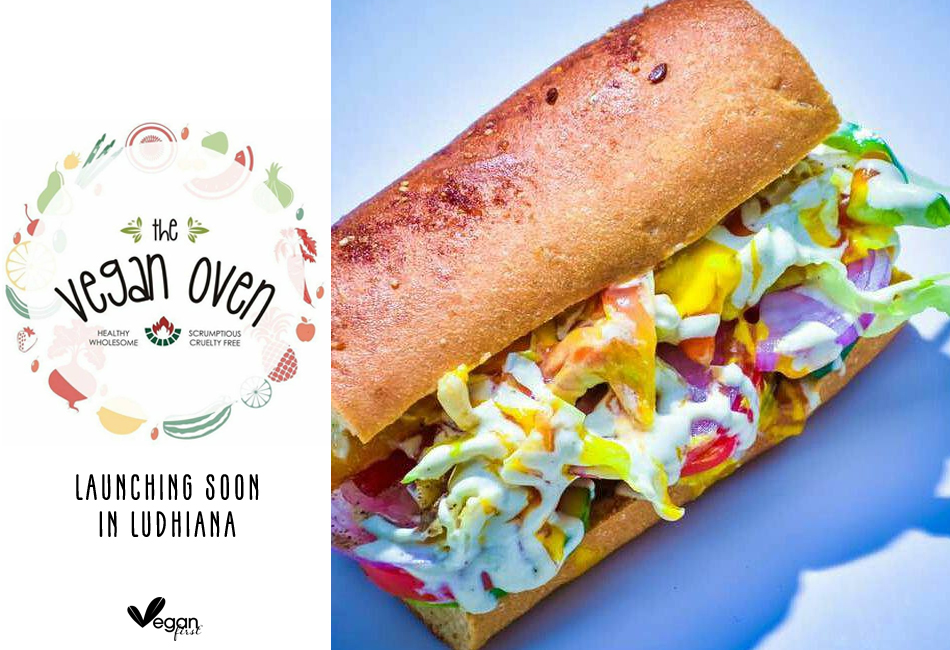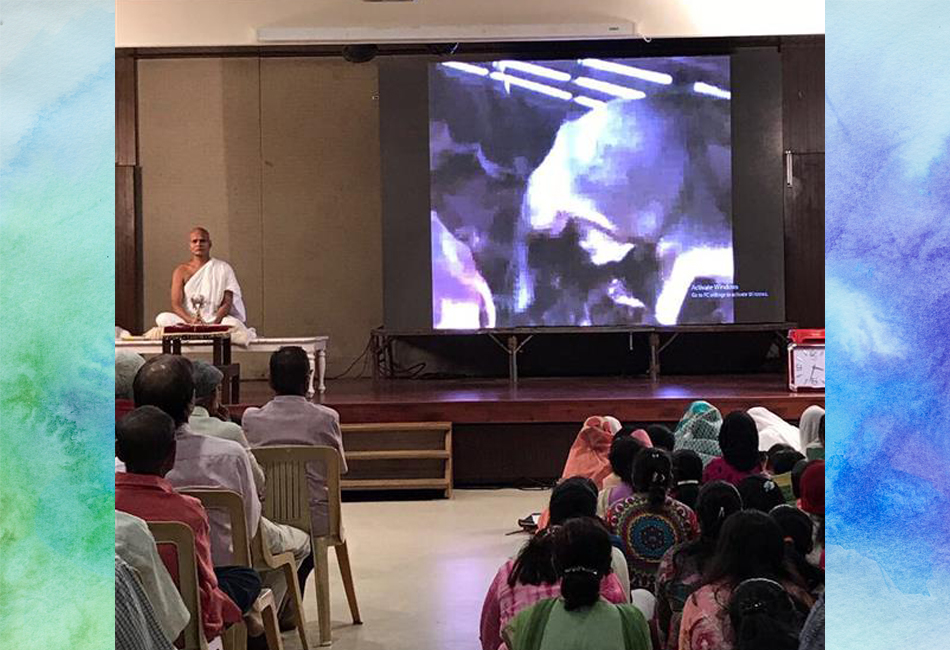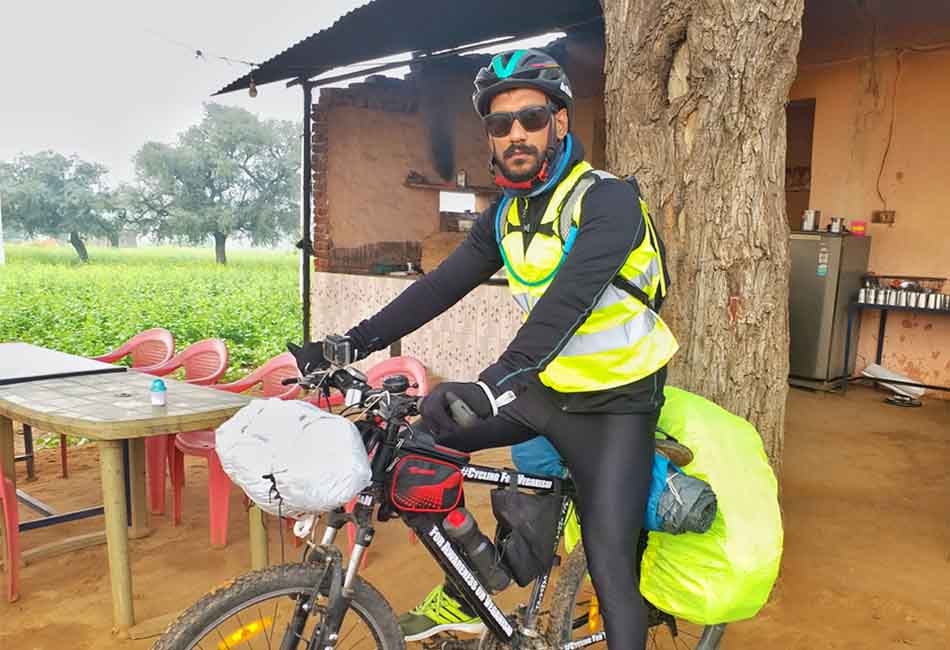Download Free Vegan Starter Kit -
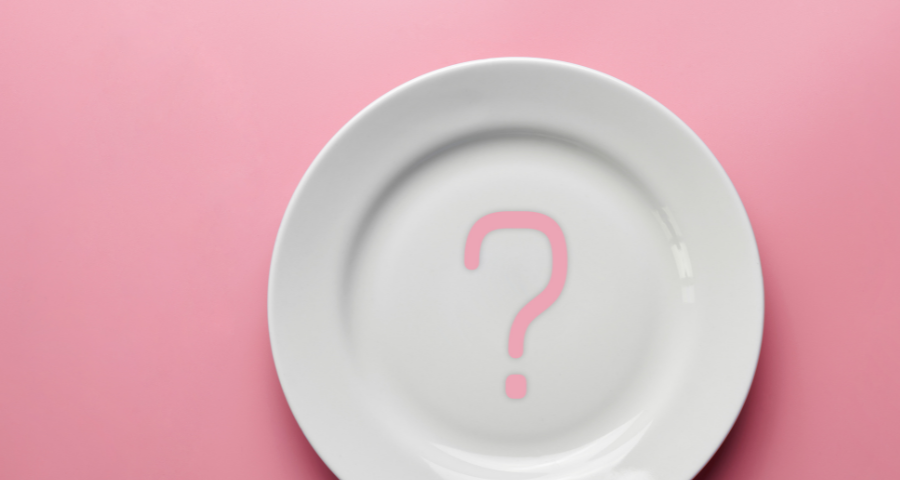
What does vegan mean? + Tips to begin a plant-based lifestyle
April 4th, 2023
The vegan movement has been taking the world by storm. Thousands of people are making a shift in their lifestyle to be kinder and more compassionate to all sentient beings. But there is still a large population that isn’t aware of veganism and what the word ‘vegan’ means.
That is why we are here to tell you everything you need to know about this lifestyle and help you understand what a vegan way of life entails. Let’s begin.
WHAT DOES ‘VEGAN’ MEAN?
History of veganism
The term vegan was coined in 1944, when Donald Watson and Dorothy Morgan sought a word that was different from vegetarians, for those who avoided dairy and poultry besides animal meat. The word was derived from the first three and last two letters of ‘vegetarian’. In India too, the non-violent way of living could be traced back to ancient societies and religions like Jainism.
Meaning of veganism
Veganism simply means that those who follow this lifestyle avoid all forms of products derived from animals, including meat, dairy, seafood, poultry, honey, silk and leather. People adopt the vegan lifestyle due to several reasons, such as exposure to the torturous practices of animal and dairy farming, its resultant impact on the planet and climate, as well as awareness about the health impacts of dairy and animal consumption.
WHAT DO VEGANS EAT?
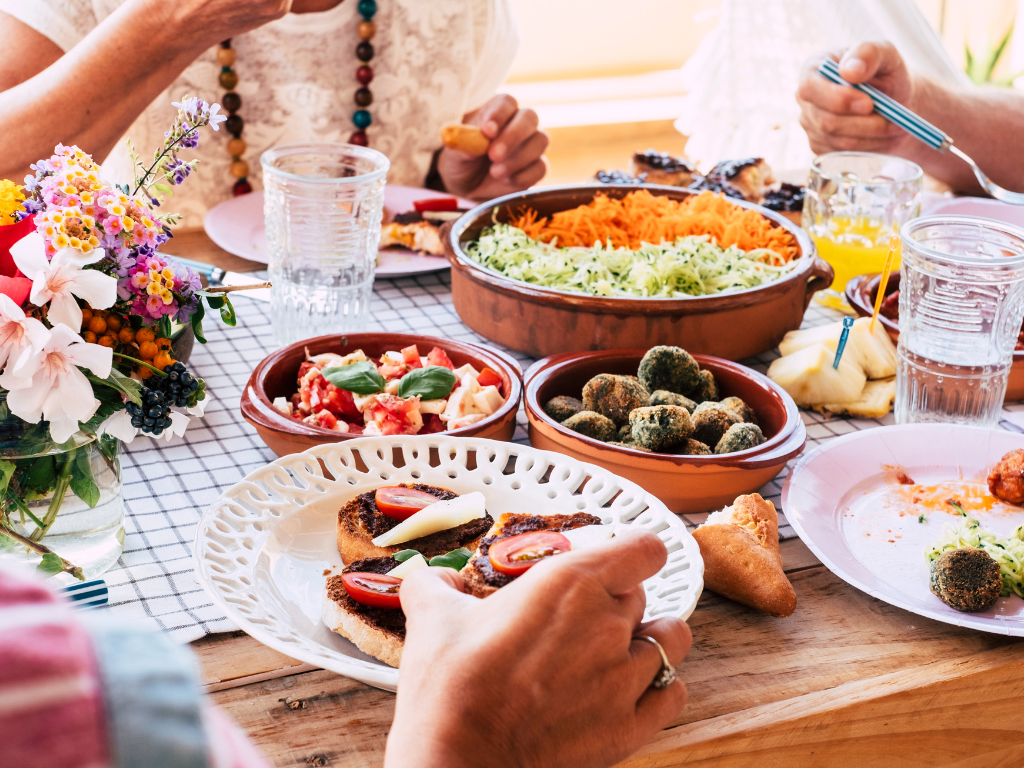
There is no dearth of choice in the food vegans eat. Vegan diets are diverse, comprising a range of fruits, vegetables, nuts, seeds, whole grains, beans and pulses. There are endless combinations possible — from curries to cakes and sushi to biryanis, one can make everything 100% plant-based and vegan by avoiding animal-based products.
Indian cuisine, especially, is rich in foods that are vegan by default. These include rice, dal, roti, sabzi, dosa, idli, appam and several other dishes across Northern and Southern India. Throughout the world as well, several cuisines such as Middle-eastern and Asian cuisines comprise an array of naturally vegan delicacies.
Did you know?
There are 80,000 edible plant species in the world. You can never fault a vegan diet for lack of choice!
VEGANISM BEYOND FOOD
Veganism as a lifestyle can go beyond just what is on your plate. Leather, silk and fur are avoided by vegans while purchasing clothes and accessories as the materials are derived by exploiting sentient animals.
Many personal care products are tested on animals or may contain animal-derived ingredients. Thus, vegans look for the ‘cruelty-free’ or ‘vegan’ logo when choosing products such as shampoos, soaps, creams and nail paints.
Another area that concerns vegans is entertainment — zoos, aquariums, and animal races are not supported by vegans as they involve animal exploitation and caging. Hence, Vegans prefer to interact with other species by visiting national forests or animal sanctuaries where animals are rescued and cared for.

VEGAN VS. VEGETARIAN
Vegetarians, as per the traditional definition, are known to consume dairy and honey while avoiding animal meat, fish and poultry. They also use leather, fur and silk products. What makes Vegans different is that they abstain from all of these food and lifestyle products that come from animals.
VEGAN VS. PLANT-BASED
The two are very similar. However, veganism involves 100% elimination of all animals and animal-derived products from their food and lifestyle. Whereas, a plant-based diet means one that predominantly consists of plants, but the lifestyle could include certain animal products.
With growing awareness of the negative impacts of animal farming on the climate, human and animal health, many people are choosing to reduce their dependence on animals for consumption. They are turning plant-based, but don’t wish to label themselves as 100% vegans until they are sure they have eliminated all animal products from their lives.
DO VEGANS GET ENOUGH NUTRITION?
With a well-balanced and diverse diet, vegans can get adequate and appropriate nutrition. If you are unsure, here are some good sources of minerals and vitamins in a vegan diet:
Vegan sources of calcium
- Soy foods
- Beans, peas and lentils
- Nuts like almonds
- Seeds like sesame, chia and flax seeds
- Grains like amaranth and teff
- Greens like kale, bok choy
- Fruits like oranges
Vegan sources of iron
- Pulses such as kidney beans, chickpeas and lentils
- Dark green vegetables
- Wholemeal bread and flour
- Dried fruits and nuts
Vegan sources of vitamin B12
- Fortified drinks and supplements
- Yeast extracts like Marmite or nutritional yeast fortified with B12
- Nori (seaweed) sheets
Vegan sources of omega-3 fatty acids
- Flaxseeds
- Rapeseed oil
- Walnuts
Vegan sources of proteins
- Tofu
- Tempeh
- Chickpea
- Mushrooms
- Beans
- Hemp
- Barley
- Peanuts
- Green peas
- Yellow peas
- Jackfruit
- Beans
- Avocado
- Ragi
- Oats
As you can see, these can be easily made into a cornerstone of your daily or weekly diet.
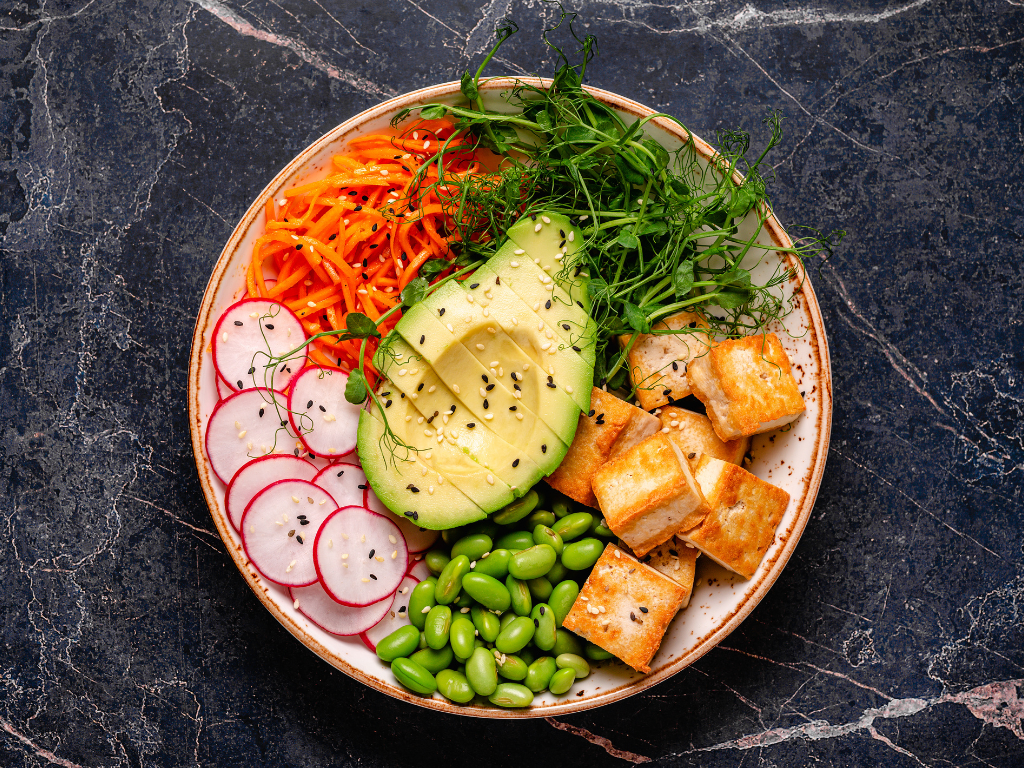
TIPS FOR A SMOOTH TRANSITION TO A VEGAN LIFESTYLE
- While transitioning to a vegan lifestyle, if you cannot attempt a 100% switch, start slowly.
- Eat a rainbow at each meal — a diverse array of fruits, vegetables, grains, legumes, seeds and nuts. This will help take care of your nutritional needs.
- When you can’t make all your required plant-based alternatives at home, tap into the burgeoning vegan food industry to cater to your needs. Everything from vegan meats and cheese to vegan egg and ice creams is now available in a variety of flavours or forms.
- Finding the right balance between healthy plant-based meals and vegan junk treats based on your food choices can ease your transition.
- Find a role model to follow — someone who has made the switch and whose diet and attitude to conscious living matches yours.
- Educate yourself on vegan nutrition and approach your body from a place of knowledge and awareness.
- Don’t forget to be kind to yourself besides the animals. If you were tempted to consume dairy or non-vegetarian food at an outing, don’t curse yourself and move on. What you do on a majority of days counts more than giving in to temptations once in a while.
- Be empathetic towards friends and family who may not understand your lifestyle. Respect their dietary choices and avoid unnecessary arguments with your dear ones.
- And when all else fails, find quotes that inspire you, such as this one by Jane Velez-Mitchell: Peace begins on your plate.
AUTHOR

trending
Be a Vegan First Informer
Send us buzzworthy news and updates
Explore
Contact Us
About Us
Stay Connected
Copyright ⓒ 2017-2023. VEGAN PASSION PRIVATE LIMITED. All Rights reserved.
For more information, please write to hello@veganfirst.com
Registered Office Address: 55, 2nd floor, lane 2, Westend Marg, Saidullajab, Near Saket Metro Station, New Delhi, Gadaipur, New Delhi South West Delhi, DL

2.png)

.png)

.png)
2.png)
2.png)
2.png)


1.png)

